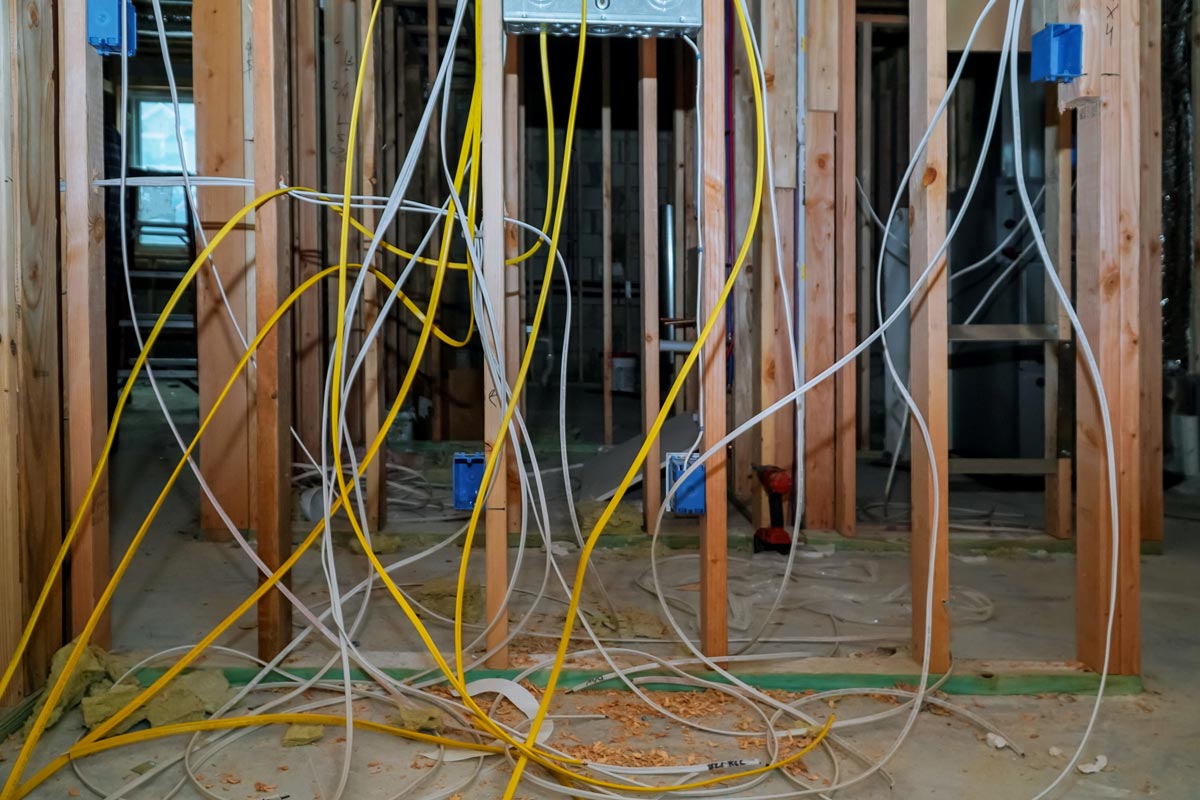Are you preparing for an electrical renovation as part of your home or office remodelling project, including an essential electrical panel upgrade? Electrical renovations are critical endeavours that require meticulous planning and attention to detail. From ensuring safety and compliance to optimizing functionality and energy efficiency, there are key considerations to keep in mind to ensure a successful outcome. In this detailed guide, we will provide specific recommendations to help you navigate the electrical renovation process effectively, focusing on upgrading your electrical panel.
1. Conduct a Thorough Assessment of Your Current Electrical System:
Before initiating any renovation work
- Conduct a comprehensive evaluation of your existing electrical system.
- Determine if it can support the increased load of new appliances and devices that will be added during the renovation.
- Consider hiring a qualified electrician to inspect your system and identify any potential issues, such as outdated wiring or overloaded circuits.
2. Plan for Future Electrical Needs
When planning an electrical renovation, it’s essential to address your current requirements and anticipate future electrical needs. Consider potential upgrades or expansions that may be necessary down the line. Consider installing additional outlets, upgrading to a higher-capacity panel, and incorporating smart home technologies to accommodate future electrical demands.
3. Is It Worth Upgrading My Electrical System to Install an EV Car Charger in BC?
Upgrading your electrical system to install an EV car charger in British Columbia (BC) might be a worthwhile investment. BC’s increasing EV adoption, driven by government incentives and environmental awareness, makes this upgrade timely and beneficial.
The BC government provides incentives, such as rebates and grants, to support EV charger installation, helping offset initial costs. Upgrading your electrical system ensures compliance with the latest BC Electrical Code, adopted in October 2022, enhancing safety and future-proofing your home.
4. Hire a Qualified Electrician with Renovation Experience
Electrical renovations require the expertise of a licensed and experienced electrician. When selecting an electrician for your project, look for someone with a proven track record in handling renovation projects. A skilled electrician will ensure that the work is completed safely and efficiently and complies with all regulations.
5. Emphasize Energy Efficiency in Your Renovation Plans
Prioritizing energy efficiency can yield significant benefits beyond just lowering your utility bills. Incorporating energy-efficient elements into your electrical upgrades can enhance the sustainability of your space and contribute to a greener environment.
- LED lighting is a prime example of an energy-efficient option. These lights consume significantly less energy than traditional incandescent bulbs while providing the same brightness level. Moreover, LED bulbs have a much longer lifespan, reducing the frequency of replacements and decreasing energy consumption over time.
- Opting for energy-efficient appliances can substantially reduce your home’s overall energy consumption. Look for appliances with ENERGY STAR certification, which indicates that they meet strict energy efficiency guidelines set by the Environmental Protection Agency (EPA). These appliances use advanced technology to minimize energy usage without sacrificing performance.
- Integrating smart thermostats into your renovation plans is another effective way to enhance energy efficiency. These innovative devices learn your heating and cooling preferences over time and automatically adjust temperature settings to optimize energy usage. By allowing you to remotely control your home’s climate and schedule heating and cooling cycles based on your routine, smart thermostats help minimize wasted energy and maximize comfort.
Incorporating energy-efficient electrical fixtures and devices into your renovation not only leads to immediate savings on utility bills but also offers long-term benefits. Reduced energy consumption translates to lower greenhouse gas emissions, contributing to a healthier environment.
6. Create a Detailed Budget and Allow for Contingencies
Develop a comprehensive budget that includes all expenses related to your electrical renovation, including materials, labour costs, permits, and potential upgrades. Allocating a contingency fund to account for unexpected expenses that may arise during the renovation process is important. Planning for contingencies can help you avoid budget overruns and delays.





